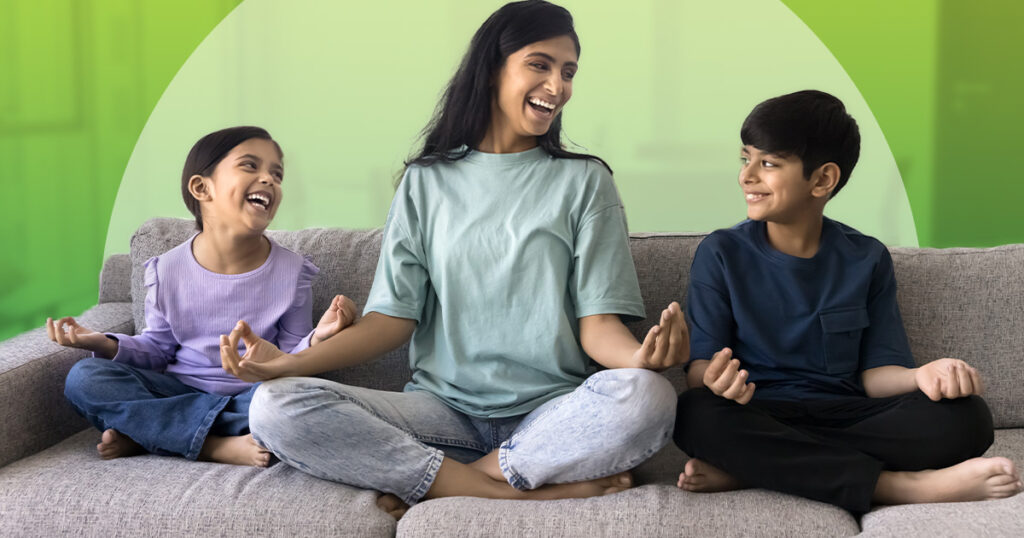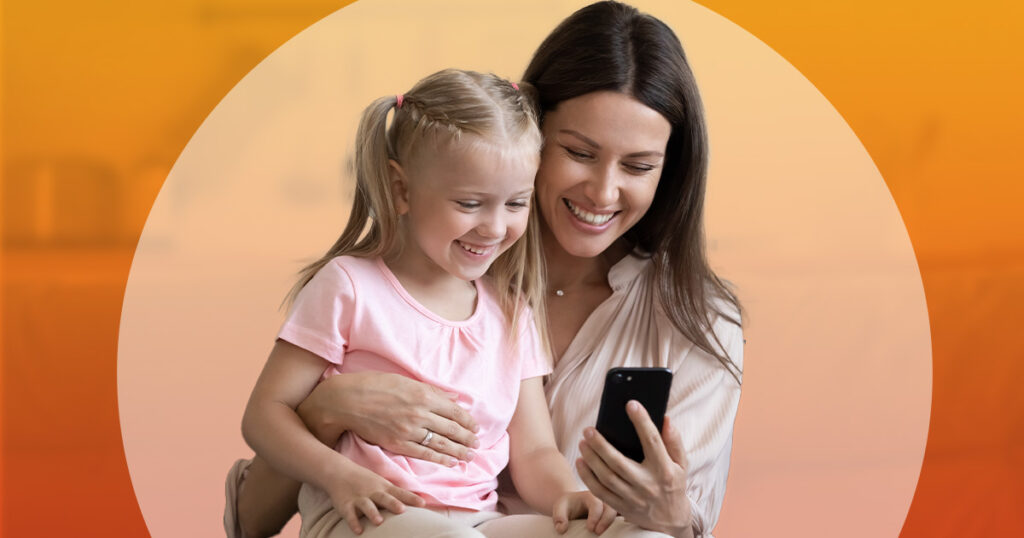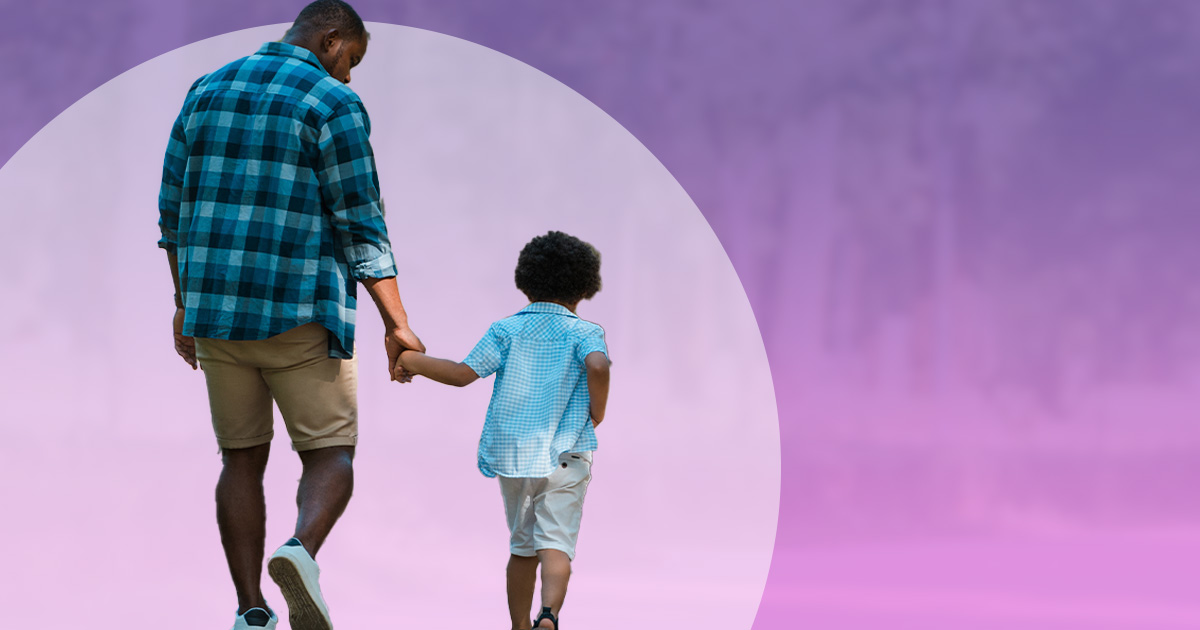What is Mindfulness, and Why is it Important for Kids?
Mindfulness is all about being fully engaged in the moment, devoid of judgment. For children, this practice offers a multitude of benefits, including enhanced focus, better emotional regulation, reduced anxiety, and improved coping skills. Moreover, mindfulness nurtures cognitive development, social skills, and self-awareness, equipping children with the tools to navigate life’s challenges with grace and resilience.
Incorporating routine building into a child’s daily life makes practicing mindfulness easier and more effective. Understanding the benefits of mindfulness for kids helps parents and caregivers create structured activities that promote emotional well-being and lifelong healthy habits.
Key Elements of a Mindfulness Routine for Kids
- Body Awareness: Introduce body scans and progressive muscle relaxation for kids to connect with their physical sensations.
- Mindful Movement: Incorporate yoga, stretching, or mindful walking to foster a strong mind-body connection.
Gratitude Practices: Encourage gratitude journaling or sharing thankful moments at dinner to cultivate resilience, positivity and a stronger emotional connection in daily life.

Creating a Mindfulness Routine
Mindfulness can be both fun and engaging for children through simple activities that encourage focus and awareness. Breathing exercises, such as taking slow, deep breaths while watching bubbles float, help them connect with their breath in a playful way.
The “mind jar” activity, where a jar filled with water and glitter is shaken to represent busy thoughts, allows children to visualize emotions and observe how they gradually settle, promoting a sense of calm.
Mindful nature walks further enhance this practice by encouraging children to tune into their senses, noticing the sights, sounds, and textures around them, making mindfulness an interactive and immersive experience.
Integrating Engaging Mindfulness for Kids
Setting the tone for the day with morning mindfulness rituals, winding down before bed with calming practices, and incorporating mindful pauses during transitions are effective ways to infuse mindfulness seamlessly into children’s daily routines.
Consider activities like:
- Breathing exercises
- Nature Walks
- Mindful Eating
The Role of Parents in Modeling Mindfulness
Parents play an essential role in modeling mindful behaviors for their children. By practicing mindfulness themselves, managing stress effectively, and expressing gratitude, parents can positively influence and support their children’s mindfulness routines.
Tips for Parents to Model Mindful Behaviors:
- Stay Present – Give full attention during conversations, limit distractions, and engage in activities with mindfulness.
- Manage Stress Effectively – Use deep breathing, meditation, or short pauses to regulate emotions, showing children healthy ways to handle stress.
- Practice Gratitude – Express appreciation for small moments daily, whether through gratitude journaling or simply acknowledging positive experiences.
- Encourage Mindful Breaks – Take short moments to breathe, stretch, or reflect, demonstrating how to incorporate mindfulness into daily life.
- Listen with Full Attention – Practice active listening by maintaining eye contact, acknowledging feelings, and responding with empathy.
By incorporating these habits, parents not only strengthen their own mindfulness practice but also create a supportive and mindful environment for their children.
The Role of Parents in Modeling Mindfulness
Parents play an essential role in modeling mindful behaviors for their children. By practicing mindfulness themselves, managing stress effectively, and expressing gratitude, parents can positively influence and support their children’s mindfulness routines.
Tips for Parents to Model Mindful Behaviors:
- Stay Present – Give full attention during conversations, limit distractions, and engage in activities with mindfulness.
- Manage Stress Effectively – Use deep breathing, meditation, or short pauses to regulate emotions, showing children healthy ways to handle stress.
- Practice Gratitude – Express appreciation for small moments daily, whether through gratitude journaling or simply acknowledging positive experiences.
- Encourage Mindful Breaks – Take short moments to breathe, stretch, or reflect, demonstrating how to incorporate mindfulness into daily life.
- Listen with Full Attention – Practice active listening by maintaining eye contact, acknowledging feelings, and responding with empathy.
By incorporating these habits, parents not only strengthen their own mindfulness practice but also create a supportive and mindful environment for their children.
Leveraging Technology and Apps to Support Mindfulness
Explore kid-friendly mindfulness apps like Carrotology, Headspace for Kids, Calm Kids, and Smiling Mind to enhance your child’s mindfulness journey.

Help your child develop mindfulness with the Carrotology App. Create structured routines that promote focus, self-discipline, and emotional well-being. Download today a and make mindfulness a daily habit!
Consider incorporating guided meditations, soothing sleep stories, and breathing exercises from these apps into your child’s routine.
Overcoming Challenges and Celebrating Progress
During mindfulness sessions, address common challenges such as resistance, adapting practices for different age groups, and dealing with restlessness.
Measure progress by observing subtle changes in behavior, mood, and focus, and celebrate your child’s consistency and effort in practicing mindfulness.
Explore how our features can support your child’s mindfulness journey. Visit our Features to learn more!
Embracing a Mindful Future
Establishing a mindfulness routine for children offers lifelong benefits, from improved focus and emotional resilience to greater self-awareness and overall well-being. As parents, embracing this journey with patience and flexibility ensures a positive and lasting impact. Join our pilot program to delve deeper into mindfulness practices and discover a wealth of resources to support your child’s mindfulness journey. Here’s to a future filled with peace, presence, and profound well-being for our children.




